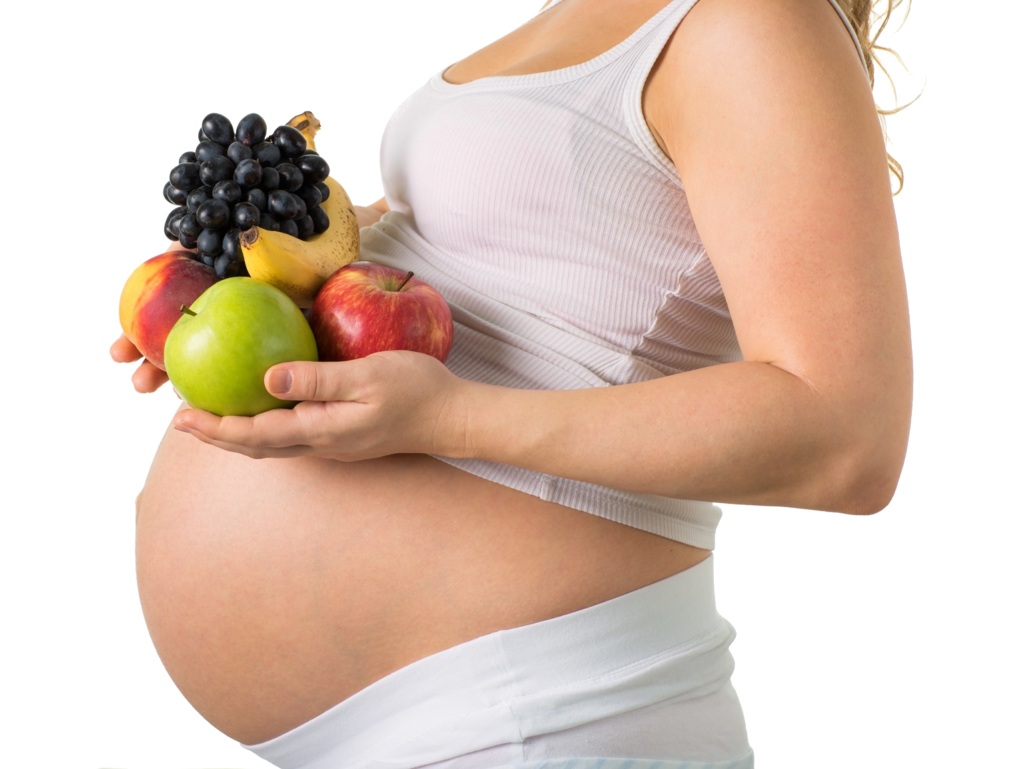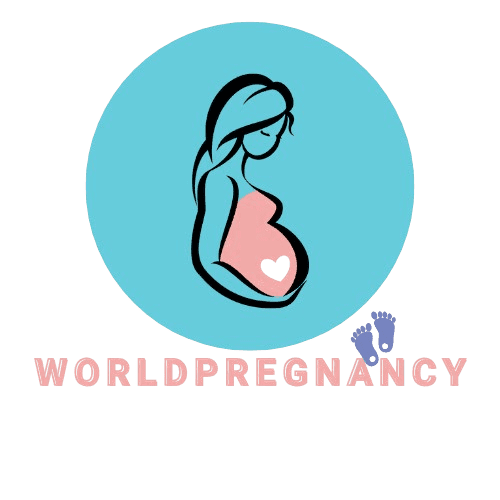Nutrition for pregnant women for a healthy pregnancy
Various physical and mental changes occur in women’s bodies during pregnancy. Ensuring proper nutrition during this time is very important for the healthy development of the fetus and the overall health of the mother. Nutritional deficiencies in pregnant women can hinder the normal growth of the baby and increase the risk of various health problems for the mother and child.

Importance of nutrition during pregnancy
The nutrition of a pregnant woman determines not only the health of the mother but also the health of the unborn child. Additional nutrition is needed to accommodate the baby’s growth and changes in the mother’s body. Lack of proper nutrition during pregnancy can lead to low birth weight, premature delivery, and long-term developmental problems.
Essential nutrients for pregnant women
To ensure a balanced diet during pregnancy, the diet should contain various nutrients.
1. Protein
Protein is especially important in the development and growth of the baby’s cells during pregnancy. Good sources of protein include:
– Poultry and fish: Fish rich in omega-3 fatty acids, such as salmon, are helpful for baby brain development.
– Eggs: An accessible source of protein that helps meet the mother’s nutritional needs.
– Pulses and Nuts: Good sources of protein for vegetarian mothers.
2. Carbohydrates
Carbohydrates provide energy and help meet the mother’s energy needs during pregnancy. Complex carbohydrates like brown rice, whole grains, and oats keep blood sugar levels stable.
3. Fat
Healthy fats such as monounsaturated and polyunsaturated fats are essential during pregnancy. They are helpful in the development of the baby’s brain and eyes.
– Avocado and olive oil: good sources of monounsaturated fats.
– Fatty fish: Contains omega-3s that reduce the mother’s risk of heart disease.
4. Vitamins and minerals
Pregnant women have special needs for various vitamins and minerals.
– Folic acid: Helps prevent neural tube defects in early pregnancy. Green vegetables, pulses, and fortified cereals are good sources of folic acid.
– Iron: Iron helps in the formation of hemoglobin in the blood, which ensures the oxygenation of the blood of the mother and the baby.
– Calcium: Important for the development of baby’s bones and teeth. Milk, yogurt, and cheese are good sources of calcium.
– Vitamin D: Helps to increase the absorption of calcium and strengthen the bone structure.

Ideal daily meal plan
An ideal daily diet plan for pregnant women should be made which will provide all the required nutrients.
Breakfast
Ideal breakfast ingredients for pregnant women
Breakfast for pregnant women should consist of foods that consist of essential proteins, carbohydrates, fats, vitamins, and minerals. Here are some useful foods:
1. Oatmeal and fruit
Oatmeal is rich in fiber and keeps the stomach full for longer. Bananas, apples, or strawberries mixed with it provide vitamins and minerals, which help in the proper development of the baby.
2. Egg omelette or boiled eggs
Eggs are a good source of protein and the choline it contains plays an important role in a baby’s brain development. Adding spinach, tomatoes, and onions to the egg omelet makes it more nutritious.
3. Brown bread and peanut butter
Whole-grain brown bread is a source of healthy carbohydrates, and peanut butter’s healthy fats and proteins are beneficial for pregnant women.
4. Fruit mix with curd and honey
Yogurt is rich in probiotics, which help improve digestion. Adding honey and fruits like blueberries or strawberries to it increases the nutritional value and provides vitamin C and antioxidants.
5. Smoothies or shakes
Smoothies made with bananas, spinach, almond milk, and chia seeds are excellent sources of vitamins and minerals. It contains iron and calcium, which are very important for pregnant women.
Lunch
Ideal lunch ingredients for pregnant women
1. Protein rich food
Protein is very important for pregnant women as it helps in cell growth and repair.
Chicken or fish: Low in fat and high in protein, safe for pregnant women.
Pulses and Legumes: Excellent source of protein for vegetarians.
2. Carbohydrates
It is important to consume carbohydrates as the main source of energy.
Brown rice or whole grain bread: Low on the glycemic index and keeps you full longer.
Quinoa or Semolina: Easily digestible and nutritious.
3. Green vegetables
Green vegetables are rich in vitamins and minerals, which are essential during pregnancy.
Spinach and Broccoli: Sources of iron and folic acid, which help baby’s brain development.
Carrots and Tomatoes: Rich in vitamins A and C.
4. Foods rich in calcium
Calcium helps in the development of bones and teeth.
Yogurt or sour yogurt: Rich in probiotics and calcium.
Cheese: Provides calcium as well as protein.
5. Healthy fats
Olive Oil: Healthy monounsaturated fat, which is good for the heart.
Avocado: Rich in healthy fats and fiber.
Evening meal
Evening meal ingredients for pregnant women
1. Light soup or stew
Vegetable soup or chicken stew: Soups made with vegetables, chicken, or chicken bones are digestive and nutritious.
2. Fruits and nuts
Fresh fruit salad: Fruit salad can be eaten by mixing apples, bananas, guavas, strawberries, etc. It contains vitamins and antioxidants. Nuts: Healthy fats in peanuts, cashews, and walnuts boost mom’s energy.
3. Yogurt and honey
Sour Yogurt: Yogurt rich in probiotics is good for digestion. Mixing it with honey makes it more nutritious and provides essential calcium and protein.
4. Light sandwiches or wraps
Vegetable and Egg Sandwiches: Sandwiches made with hard-boiled eggs, tomatoes, cucumbers, and lettuce on whole-grain bread are a source of protein and fiber. Chicken Wraps: Wraps made of chicken breast with vegetables and yogurt dressing are nutritious and easy to digest.
Dinner
Ideal dinner ingredients for pregnant women
1. Protein rich food
Grilled fish or chicken: Provides protein and omega-3 fatty acids, which help baby’s brain development. Dal or lentil: Excellent source of protein for vegetarians.
2. Whole grain foods
Brown rice or quinoa: Provides high fiber and easily digestible carbohydrates. Whole grain bread: Can be eaten with light vegetables or meat.
3. Vegetables
Vegetable Fry or Salad: Broccoli, spinach, carrots, etc. provide vitamins and minerals. It contains iron, folic acid, and other important nutrients. Vegetable Soup: Digestive and nutritious.
4. Calcium and probiotics
Curd: Rich in probiotics and aids in digestion. It also contains calcium, which is important for bones. Cheese: Small pieces of cheese can be eaten at the end of the meal.

Foods and drinks to avoid
Certain foods and drinks that may be dangerous for the baby should be avoided during pregnancy.
– Raw or undercooked fish and meat: risk of parasites or bacteria.
– Excess caffeine: This may affect the baby’s health.
– Alcohol: May inhibit the development of the baby’s brain.
– Certain fish: such as sharks and swordfish contain high levels of mercury.
Drinking water and hydration during pregnancy
Drinking enough water during pregnancy is very important. Water regulates body temperature, provides nutrients, and helps eliminate waste products. Drink at least 8-10 glasses of water daily.
Some advice on nutrition and lifestyle
– Adequate rest: Adequate sleep helps reduce stress during pregnancy and keeps the body fresh.
– Light exercise: Regular walking or yoga improves blood circulation.
– Calmness: Meditation and breathing exercises effectively reduce pregnancy stress.
Conclusion
Nutrition of pregnant women is very important not only for the health of the mother but also for the healthy development of the child. Proper diet, adequate rest, and healthy lifestyle are essential for the health of mother and child during pregnancy. Therefore, it is very important to ensure a combination of various nutrients in the daily diet.
Visit Social Media
